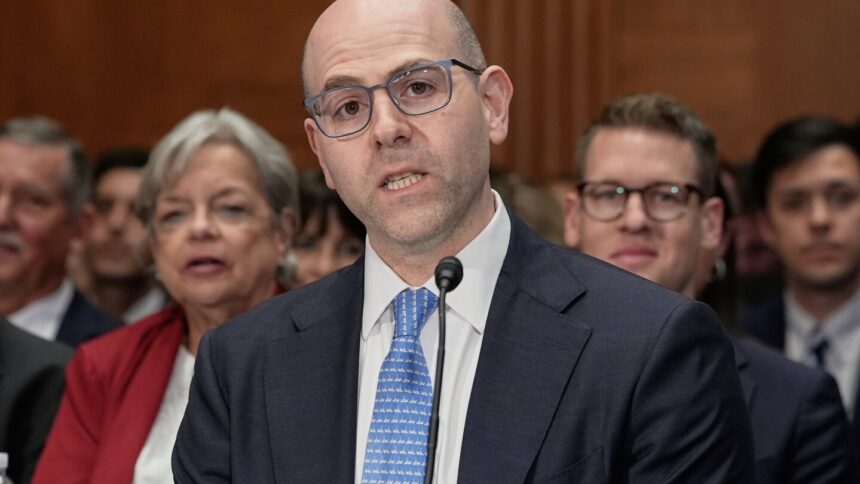The Senate has confirmed Stephen Miran, one of President Donald Trump’s top economic advisers, to the Federal Reserve’s governing board, potentially increasing the administration’s influence over the central bank just ahead of a significant rate-setting decision. The confirmation vote, which passed largely along party lines with a narrow margin of 48-47, saw all Republican senators supporting Miran’s nomination except for Alaska Senator Lisa Murkowski, who opposed it.
Miran’s nomination has raised questions about the Federal Reserve’s longstanding independence from political pressures. During a recent committee hearing, he stated that he would continue to serve as chair of the White House’s Council of Economic Advisers, albeit on unpaid leave, a stance Senate Democrats argue undermines the Fed’s autonomy. Senate Democratic Leader Chuck Schumer criticized Miran, asserting that he would serve primarily as “Donald Trump’s mouthpiece at the Fed.”
Miran is set to complete an unexpired term that will conclude in January, following the unexpected resignation of his predecessor, Adriana Kugler. He has indicated that if appointed to a longer term, he would resign from his White House role, a departure from previous practices where appointees have left their administration positions before joining the Fed.
In his confirmation hearing, Miran pledged to act independently, stating, “I will act independently, as the Federal Reserve always does, based on my own personal analysis of economic data.” Notably, last year he expressed concerns about the “revolving door” phenomenon between the White House and the Fed in a paper co-authored with Daniel Katz, now chief of staff at the Treasury Department.
Miran’s confirmation comes amid challenges to Trump’s broader strategy to reshape the Federal Reserve. The president has aimed to dismiss Fed governor Lisa Cook, a Biden appointee, but Cook has successfully challenged the attempted removal in federal court. The court ruled that the administration lacked sufficient grounds for Cook’s dismissal, and the appeal from the administration was rejected.
As Miran joins the Fed, the central bank finds itself navigating a complex economic landscape characterized by persistent inflation and a recent uptick in unemployment rates, which now stand at a relatively low 4.3%. Typically, the Fed raises interest rates to combat high inflation, but with rising unemployment, the bank may consider cutting rates to stimulate economic growth. Predictions suggest that the Fed will reduce its key interest rate to approximately 4.1% during its imminent two-day meeting, although Trump has called for even more substantial rate reductions. The ongoing deliberations underscore the tension between political objectives and economic realities as the nation grapples with a challenging economic outlook.






